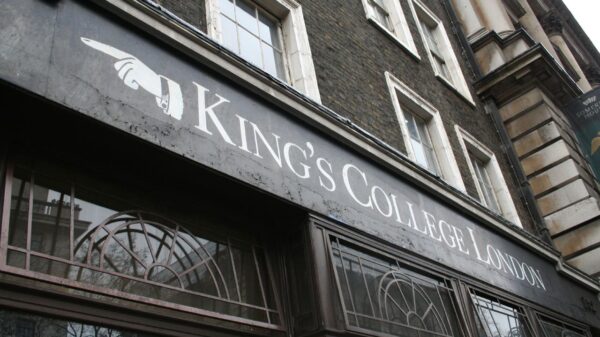Roar writer Elena Veris Reynolds discusses the “Grounding” installation and invites us to think more critically about so-called critical art.
Last Wednesday, Goldsmiths University students and passers-by were left stunned when a truck entered the campus and dumped 29 tonnes of carrots outside the Centre for Contemporary Arts. It soon emerged that it was an installation called “Grounding†by Rafael Perez Evans, a recently graduated Fine Arts Master’s student at the college, as part of the MFA degree show. The carrots are supposedly “unwanted†and would have been thrown out by supermarkets. Whether they were donated or purchased for the exhibition is unclear, but they will allegedly all be donated to farm animals after the show ends.
Many have been rather critical of the installation, however, including Goldsmiths students. A group of students has been harvesting the carrots, making soup and cakes out of them, and giving them away while collecting donations for local food banks. Their Instagram account, @goldsmithscarrots, chronicles this. One post shows an official sign next to the installation that reads NOT FOR HUMAN CONSUMPTION. The students have placed several signs next to it, detailing “Says who?†and bringing attention to the fact that Lewisham, where the university’s campus is, has around 40% of children living below the poverty line.
“Grounding†and the furore that surrounds it should prompt us to think more critically about so-called critical art. The artist claims on his website that the installation references dumping as a form of protest by farmers. It claims to be bringing “blinded city people into an alarming contact with their forgotten foods and its production.†But in the process of taking (some might even say appropriating) a protest method and making it into an art installation, Evans has removed the original meaning and intention of dumping which creates “monumental barricades that can block governmental buildings.†The function these carrots perform all over the streets of Lewisham is very different to French farmers dumping manure in front of lawmakers’ officers to protest a new trade deal, for example. Furthermore, as Sara Bafo (Welfare and Liberation officer for Goldsmiths SU) highlights, Lewisham suffers from high levels of poverty, and the installation seems rather tone-deaf in this regard, on both the part of the artist and the university. It seems insensitive and high and mighty to call local people “blinded†to their methods of food production, when many of them are struggling to even feed themselves every day.
Here we reach one of the biggest problems of the modern art world – modern art is perceived as, and often celebrated for, being critical of the world around it. But very rarely does it, or the art world at large, look introspectively on who is making the art. When we get caught in this loop of justifying anything that calls itself art, we don’t make art more accessible. Instead, we continue to uphold and reinforce structures that have always been at work in the Western Art World. We continue to justify and celebrate white, rich, and privileged artists doing whatever they like and calling it art. Just because something is new or shocking, or seemingly pushes the boundaries of traditional visual art, it doesn’t automatically make it good. More importantly, it doesn’t erase the other things the artwork may be doing or saying outside of the galleries and art schools.
I believe this is one of the main reasons why the art world is still so incredibly inaccessible and snobby. The current strikes, which have been happening for the past six weeks at the Tate galleries, highlight this rift. 300 low-paid staff are to be made redundant by Tate galleries, despite the fact that Tate received a £7 million Covid-19 bail-out fund from the government. As @tate_united highlights on Instagram, it would take only 10% of this bailout to save these worker’s jobs. But Tate is unwilling to spend that money.
For those made redundant and struggling to feed themselves and their families, a famous new exhibition of Damien Hirst or Tracey Emin that money goes into doesn’t matter, because they are dealing with the much more immediate, and possibly life-threatening, losses of their jobs. For those struggling to get by in London every day, “Grounding†is just a pile of carrots. It is not helping them or creating any real change in the world. At best, it is a thought experiment for those privileged enough to have the luxury to engage in art; the complex and highfalutin language on Evans’s website makes it quite clear whom he wants to engage with. At worst, it is a symptom of the privileged, self-congratulatory art world in Britain today.
We have to think more critically about who creates the art we so revere and what context it was made in, and less about the intentions of the artist; less about what the art is “saying†and more about what the art is actually “doing.†Until this happens, people will continue to go hungry while piles of carrots populate the next street over.
I would like to highlight the critical work that The White Pube is doing and acknowledge how their work has encouraged me to think much more critically about the art we consume.

















